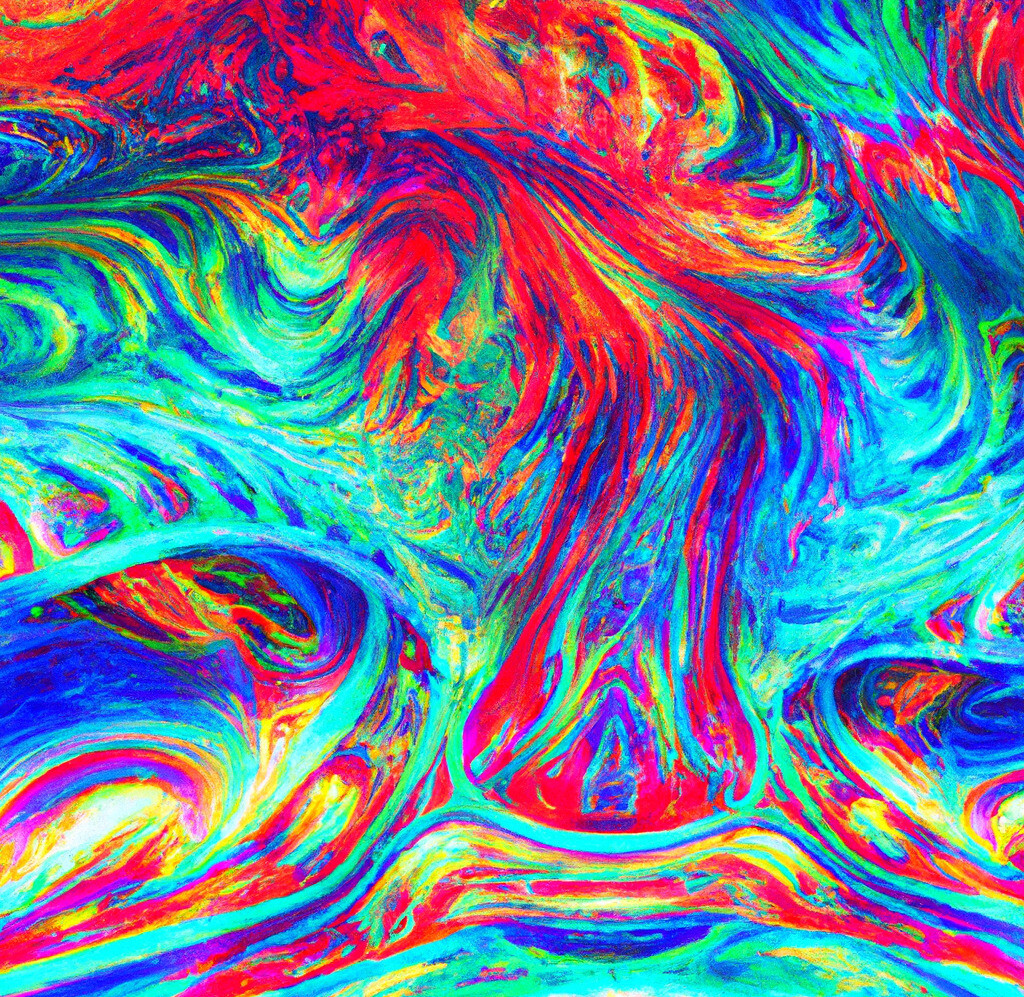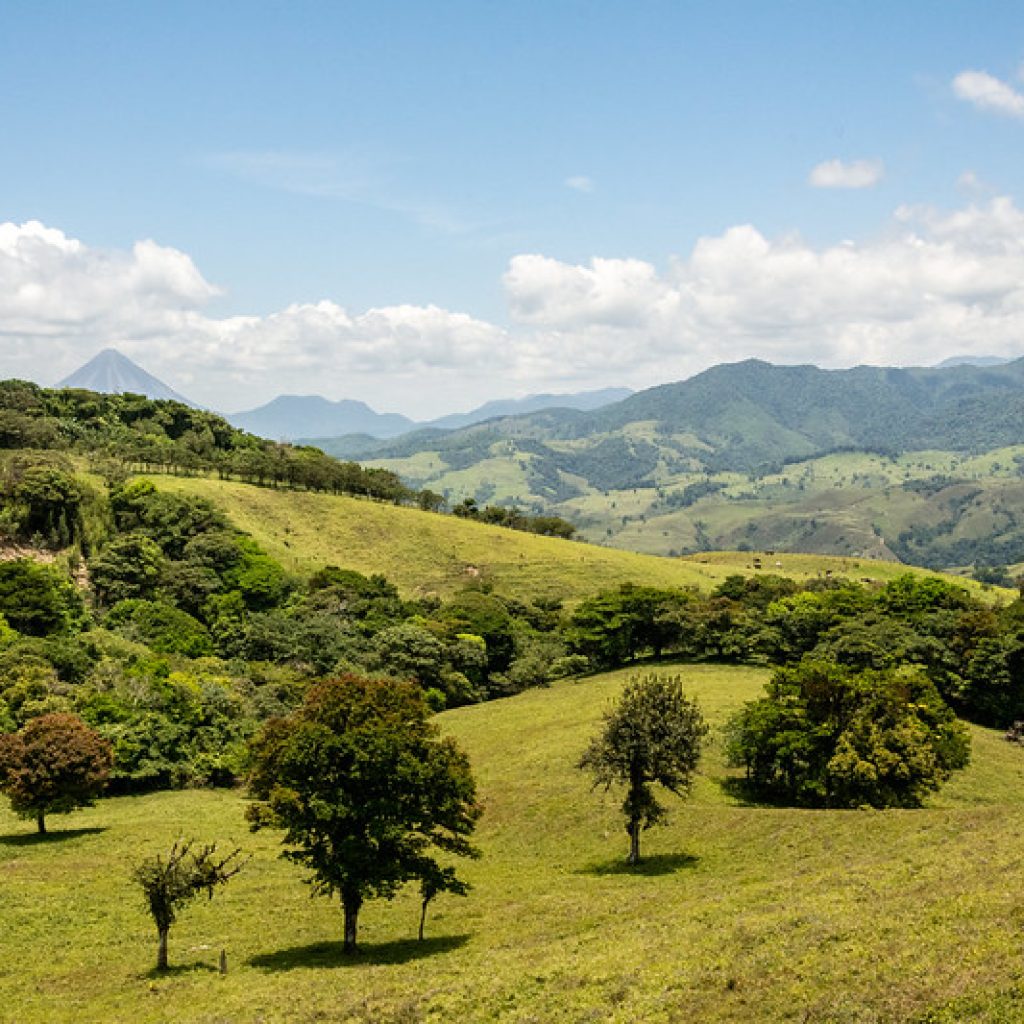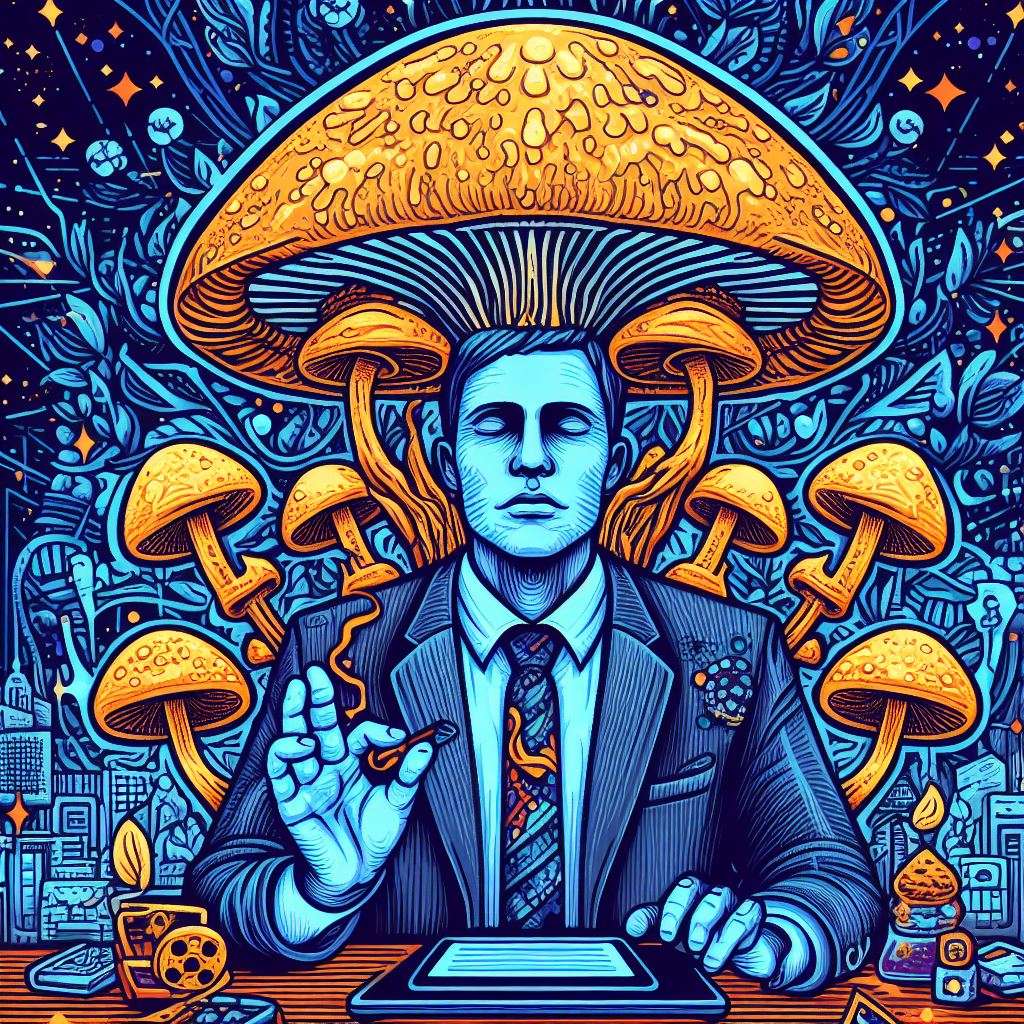In today’s fast-paced and complex world, many of us find ourselves grappling with anxiety, a condition that affects millions of individuals worldwide. Anxiety can manifest in various forms, from generalized worry to panic attacks, and it often disrupts our daily lives and overall well-being. However, what if we were to view anxiety not merely as a psychological disorder but as a spiritual crisis? What if we approached it as an invitation to explore the depths of our inner worlds and connect with something greater than ourselves? In this article, we delve into the profound insights that a psychedelic experience can offer in understanding and addressing anxiety as a spiritual crisis.
Defining Anxiety as a Spiritual Crisis
Anxiety, at its core, is an experience of profound unease and fear, often accompanied by physical symptoms such as rapid heartbeat, trembling, and restlessness. While it is commonly understood as a mental health condition, there is a growing body of thought that suggests anxiety can be viewed as a symptom of spiritual disconnection or imbalance. When we feel disconnected from our inner selves, others, and the wider world, anxiety can arise as a distress signal, signaling a deeper need for healing and connection.
Understanding the Connection Between Mental Health and Spirituality
The relationship between mental health and spirituality is a complex and multifaceted one. Spirituality encompasses a wide range of beliefs and practices, including religious traditions, mindfulness, meditation, and self-reflection. Numerous studies have explored the positive impact of spirituality on mental well-being, highlighting the potential for spiritual practices to alleviate anxiety and promote a sense of inner peace.
Psychedelic Experiences: A Gateway to Inner Worlds
Psychedelics, such as psilocybin, the active compound in “magic mushrooms,” have been used for centuries in various cultural and spiritual contexts. More recently, scientific research has rekindled interest in the therapeutic potential of psychedelics, particularly in the treatment of mental health conditions like anxiety and depression. These substances have the capacity to induce altered states of consciousness, leading to profound experiences that can provide valuable insights into our inner worlds.
Through the exploration of psychedelic experiences, we have an opportunity to embark on a transformative journey within ourselves, confronting deep-seated fears, addressing unresolved traumas, and gaining a fresh perspective on existential questions that often contribute to anxiety. By opening the doors of perception, psychedelics can offer a unique lens through which we can examine our spiritual nature and foster a sense of interconnectedness with the universe.
The Link Between Anxiety and Spirituality
Anxiety, as a spiritual crisis, invites us to explore the profound connection between our mental health and spirituality. While anxiety is often addressed solely through conventional psychological and medical approaches, understanding the spiritual dimensions of anxiety can provide a holistic framework for healing and personal growth. In this section, we will delve deeper into how anxiety can be viewed as a symptom of spiritual disconnection or imbalance and explore the role that mindfulness, meditation, and other spiritual practices play in managing anxiety.
Anxiety as a Symptom of Spiritual Disconnection
When we experience anxiety, it can be an indication that we have become disconnected from our true selves, our values, and our sense of purpose. In our modern society, we often find ourselves caught up in the relentless pursuit of success, material possessions, and external validation. This relentless striving can lead to a disconnection from our inner selves and a neglect of our spiritual well-being. Anxiety may arise as a result of this disconnection, reminding us of the need to restore balance and reconnect with our deeper truths.
The Role of Mindfulness, Meditation, and Spiritual Practices
Mindfulness and meditation have gained considerable attention in recent years for their ability to alleviate stress and promote well-being. These practices invite us to cultivate present-moment awareness, observe our thoughts and emotions without judgment, and develop a deeper connection to ourselves and the world around us. By incorporating mindfulness and meditation into our daily lives, we can develop greater resilience to anxiety and cultivate a sense of inner peace.
In addition to mindfulness and meditation, engaging in spiritual practices such as prayer, journaling, yoga, or spending time in nature can also contribute to anxiety relief. These practices provide opportunities for self-reflection, introspection, and connecting with something greater than ourselves. By nurturing our spiritual well-being, we create a solid foundation for managing anxiety and finding meaning and purpose in our lives.
The Synergistic Potential of Psychedelics and Spiritual Practices
While mindfulness, meditation, and spiritual practices offer powerful tools for managing anxiety, the combination of these practices with psychedelic experiences can amplify their transformative effects. Psychedelics can facilitate a profound sense of connectedness, dissolve rigid patterns of thinking, and open doors to profound insights and healing. When used in a therapeutic and intentional setting, under the guidance of trained professionals, psychedelics can catalyze profound shifts in consciousness, allowing individuals to confront and process deeply rooted anxieties and traumas.
Research into psychedelic-assisted therapy has shown promising results in the treatment of anxiety disorders. Studies conducted at reputable institutions have demonstrated that psilocybin-assisted therapy can lead to significant reductions in anxiety symptoms, long-lasting improvements in well-being, and a greater sense of interconnectedness. These findings highlight the potential synergy between psychedelics and spiritual practices in addressing anxiety as a spiritual crisis.
Psychedelic Therapy for Anxiety Relief
In recent years, there has been a resurgence of interest in the therapeutic potential of psychedelics for addressing mental health conditions, including anxiety disorders. This section explores the emerging field of psychedelic therapy and provides an overview of studies that have shown promising results in using psychedelics, such as psilocybin, for anxiety relief.
Promising Results in Psychedelic-Assisted Therapy
Scientific research has shown that psychedelics, when used in a therapeutic context, can be remarkably effective in alleviating anxiety symptoms. Studies conducted at renowned institutions, such as Johns Hopkins University and Imperial College London, have demonstrated the potential of psychedelic-assisted therapy as a groundbreaking approach to mental health treatment.
A landmark study published in the Journal of Psychopharmacology revealed that a single dose of psilocybin, administered in a controlled setting, led to significant reductions in anxiety and depression in individuals with life-threatening cancer. Moreover, the therapeutic effects of psilocybin endured long after the experience itself, with participants reporting sustained improvements in mood, quality of life, and a greater sense of existential well-being.
How Psychedelics Alleviate Anxiety Symptoms
Psychedelics like psilocybin work by modulating the serotonin system in the brain, which plays a crucial role in regulating mood, cognition, and emotional processes. The psychedelic experience induced by these substances often involves a profound alteration of consciousness, leading to an expanded state of awareness and a dissolution of the ego boundaries.
During a psychedelic journey, individuals may encounter deeply buried emotions, memories, and traumas that contribute to their anxiety. The altered state of consciousness can provide a unique opportunity for individuals to explore and process these challenging experiences in a safe and supported environment. By confronting and integrating these aspects of themselves, individuals often report a significant reduction in anxiety symptoms and a newfound sense of inner peace.
The Importance of Set and Setting
One key aspect of psychedelic therapy is the concept of “set and setting.” Set refers to an individual’s mindset, intentions, and preparation before the psychedelic experience, while setting refers to the physical environment and the presence of trained therapists or guides. The therapeutic benefits of psychedelics are greatly enhanced when they are administered in a supportive and controlled setting, where individuals feel safe and are guided by professionals experienced in psychedelic-assisted therapy.
Ethical Considerations and Legal Framework
While the therapeutic potential of psychedelics is promising, it is important to approach their use with caution and within the boundaries of the law. Currently, psychedelic therapy is undergoing rigorous research and clinical trials to establish evidence-based protocols and guidelines for safe and effective implementation.
It is worth noting that the legal status of psychedelics varies across jurisdictions. While some countries and regions have decriminalized or legalized certain psychedelic substances for therapeutic purposes, others strictly regulate their use. For instance, in Jamaica, psilocybin mushrooms are not regulated, allowing for a more open approach to their use in therapeutic settings. However, it is crucial to adhere to legal and ethical frameworks while considering psychedelic therapy as an option for anxiety relief.
Insights Gained from Psychedelic Experiences
Psychedelic experiences have the potential to offer profound insights into our inner worlds, spirituality, and the root causes of anxiety. In this section, we explore the transformative insights that can emerge during psychedelic therapy sessions, providing examples of personal anecdotes and case studies that highlight the depth of healing and self-discovery that can be achieved.
Confronting Past Traumas
One of the remarkable aspects of psychedelic therapy is its ability to facilitate the confrontation and processing of deeply rooted traumas. Under the influence of psychedelics, individuals may experience a heightened sense of emotional and psychological openness, allowing suppressed memories and emotions to resurface. By revisiting and confronting these traumas within a safe and supportive environment, individuals often find healing and liberation from the grip of anxiety that has been associated with their past experiences.
Case studies have demonstrated the potential of psychedelics in treating conditions such as post-traumatic stress disorder (PTSD). Individuals who have undergone psychedelic-assisted therapy report a reduction in anxiety related to their traumatic experiences, a reintegration of fragmented aspects of their identity, and an enhanced ability to navigate the challenges of daily life.
Gaining Perspective on Existential Questions
Existential questions about the meaning of life, mortality, and the nature of reality can often contribute to existential anxiety. Psychedelics have a unique way of expanding consciousness and providing individuals with profound insights into these existential inquiries. During a psychedelic experience, individuals may report a sense of connectedness to something greater than themselves, a deep understanding of interdependence, and a realization of their place in the vast tapestry of existence.
These insights can lead to a fundamental shift in perspective, providing individuals with a renewed sense of purpose, a greater acceptance of the impermanence of life, and a diminished fear of the unknown. By exploring these existential dimensions, individuals often experience a significant reduction in anxiety, as they develop a more holistic and grounded outlook on life.
Experiencing Ego Dissolution
Ego dissolution is a profound experience that can occur during a psychedelic journey. It involves a temporary dissolution of the sense of self, where individuals transcend their individual identities and merge with a larger, interconnected consciousness. This dissolution of the ego can lead to a profound sense of unity, interconnectedness, and a release from the limitations of the self.
During ego dissolution, individuals often report a profound sense of peace, transcendence, and a dissolution of anxiety. By temporarily letting go of the constructs of the ego, individuals gain a fresh perspective on their anxieties, realizing that they are not confined to their individual identity but are part of a greater whole. This realization can bring a sense of relief, freedom, and a profound shift in the way individuals relate to anxiety and their place in the world.
Personal Anecdotes and Case Studies
Personal anecdotes and case studies provide compelling evidence of the transformative potential of psychedelic therapy. Individuals have reported experiences of profound healing, increased self-compassion, and a shift in their relationship with anxiety. While personal anecdotes are valuable, it is essential to note that more research is needed to understand the full extent of the therapeutic benefits and long-term effects of psychedelic-assisted therapy for anxiety.
Integration: Bringing Insights Back Into Daily Life
Embarking on a psychedelic journey can provide profound insights and healing, but the real work begins when we integrate these experiences into our daily lives. In this section, we explore the importance of integration and offer practical suggestions for incorporating the insights gained from psychedelic experiences into our ongoing personal growth and anxiety management.
The Importance of Integration
Integration refers to the process of assimilating the insights, emotions, and transformative experiences from psychedelic therapy into our everyday lives. Without proper integration, the profound insights gained during the psychedelic journey may remain abstract or fleeting, limiting their potential for long-term impact. Integration allows us to anchor the transformative aspects of the experience and make sustainable changes in our attitudes, behaviors, and relationships.
Journaling and Reflection
One effective integration practice is journaling. Taking the time to write about our psychedelic experiences, insights, and emotions can help solidify our understanding and provide a record of our journey. Journaling allows us to reflect on the lessons learned, revisit important realizations, and identify patterns or areas that need further exploration. By putting our experiences into words, we create a tangible record of our progress and provide ourselves with a resource for ongoing growth.
Continued Therapy and Support
Psychedelic experiences can be intense and may bring to the surface deep-seated emotions and traumas. Engaging in continued therapy or counseling can be invaluable in processing and integrating these experiences. Therapists experienced in psychedelic-assisted therapy can provide guidance, support, and help navigate the challenges that may arise during the integration process. They can assist in translating the insights gained into actionable steps for managing anxiety and fostering personal growth.
Sustaining Spiritual Practices
To maintain the momentum of personal growth and anxiety management, it is crucial to sustain and deepen our spiritual practices. Whether it is mindfulness meditation, yoga, prayer, or other practices that resonate with us, dedicating regular time and effort to these activities can enhance our well-being and reinforce the insights gained during psychedelic experiences. These practices provide ongoing nourishment for our spiritual selves and contribute to maintaining a sense of balance and inner peace.
Community and Support Networks
Building connections with others who have gone through similar experiences or share a similar spiritual path can be invaluable during the integration process. Joining support groups, participating in integration circles, or engaging with a community of like-minded individuals can provide a sense of belonging, validation, and the opportunity for shared learning. By connecting with others who have also undergone psychedelic therapy, we can exchange insights, receive support, and cultivate a network of ongoing encouragement and growth.
Ongoing Self-Reflection and Growth
Integration is an ongoing process that extends beyond the initial psychedelic experience. Continued self-reflection and growth are essential in maximizing the long-term benefits of the insights gained. Regularly revisiting our intentions, reassessing our progress, and setting new goals allow us to stay aligned with our personal growth journey and continue the transformation initiated during the psychedelic experience.
Conclusion
Exploring anxiety as a spiritual crisis and harnessing the transformative potential of psychedelic experiences can provide profound insights into our inner worlds, spirituality, and mental well-being. By recognizing the link between anxiety and spirituality, we open ourselves to a holistic approach that addresses the root causes of anxiety and facilitates personal growth.
In this article, we have examined how anxiety can be viewed as a symptom of spiritual disconnection and explored the role of mindfulness, meditation, and other spiritual practices in managing anxiety. We have also delved into the promising field of psychedelic therapy for anxiety relief, highlighting the positive results seen in studies utilizing psychedelics such as psilocybin.
Furthermore, we have discussed the insights gained from psychedelic experiences, including confronting past traumas, gaining perspective on existential questions, and experiencing ego dissolution. These experiences, when integrated into daily life through practices like journaling, therapy, and continued spiritual engagement, offer the potential for lasting transformation and anxiety relief.
It is important to approach psychedelic therapy ethically and within legal frameworks, recognizing the ongoing research and clinical trials that are shaping its safe and effective implementation. The integration of psychedelic experiences requires dedication, ongoing self-reflection, and support from professionals, communities, and spiritual practices.
In conclusion, exploring our spirituality through the lens of psychedelic experiences can provide valuable insights into managing anxiety and fostering personal growth. By embracing the potential of these transformative journeys and integrating their insights into our daily lives, we embark on a path of healing, self-discovery, and a deeper understanding of our place in the world.
We encourage those who have struggled with anxiety and have not found relief through conventional methods to consider the potential of psychedelic therapy, while being mindful of legal and ethical considerations. Remember, the path to inner healing and spiritual growth is unique for each individual, and it is essential to find approaches that resonate with our values, beliefs, and personal circumstances.
Together, let us continue to explore the profound connection between mental health, spirituality, and the transformative power of psychedelic experiences to unlock new possibilities for anxiety relief and personal transformation.
Remember, if you or someone you know is struggling with anxiety or any mental health condition, it is important to seek professional help from qualified healthcare providers. In certain jurisdictions, psilocybin therapy, such as those offered by ONE Psilocybin Retreats, may be available as a potential option for anxiety relief. It is crucial to approach such therapies within legal and ethical boundaries, considering the varying regulations surrounding psychedelics in different jurisdictions.






3 Comments
[…] a unique and immersive way for individuals to explore the potential therapeutic and transformative benefits of this substance in a supportive and guided […]
[…] the therapeutic potential of psilocybin in treating mental health conditions such as depression, anxiety, and post-traumatic stress disorder […]
[…] natural hallucinogens may offer promising outcomes for individuals struggling with depression, anxiety, and […]